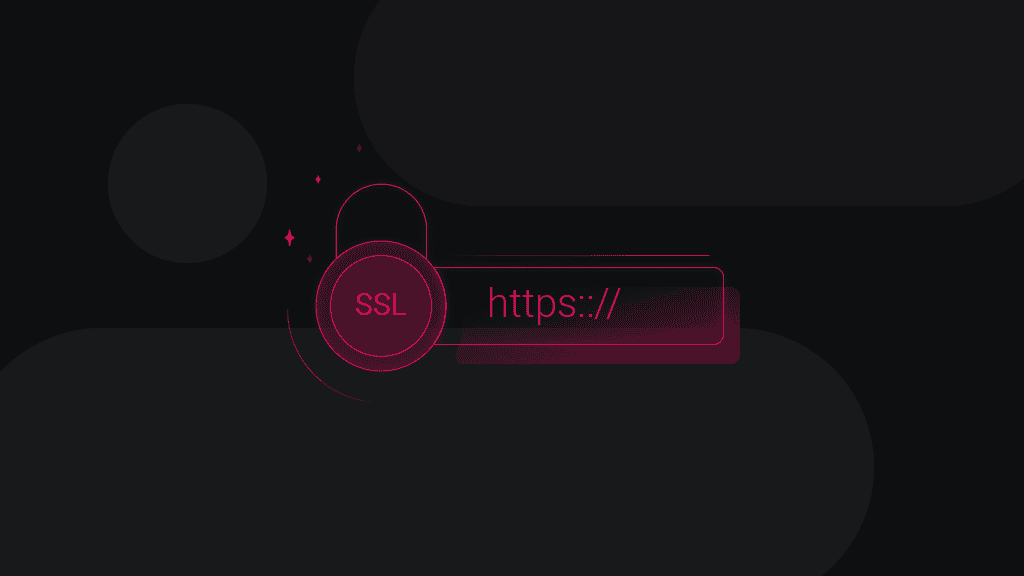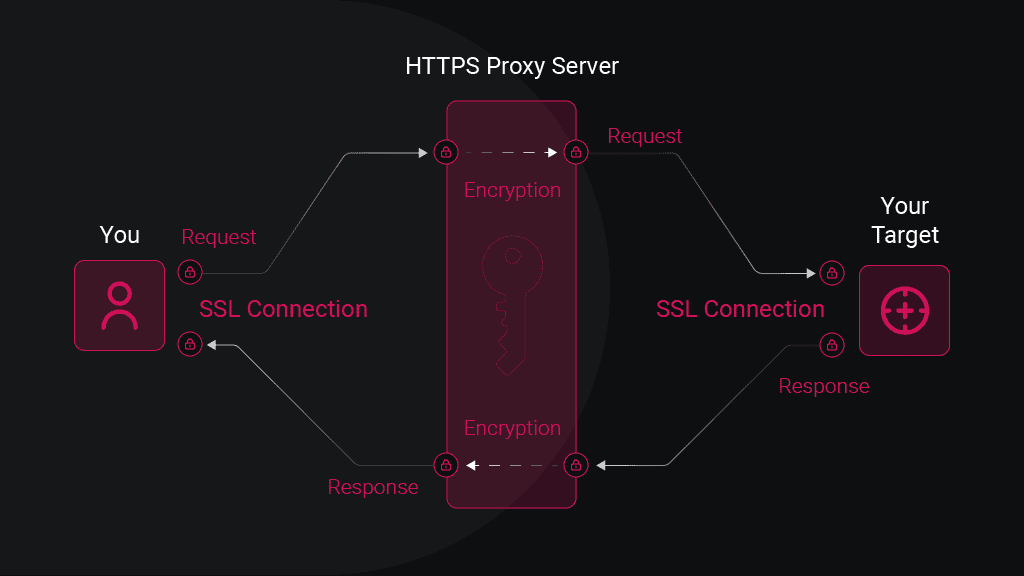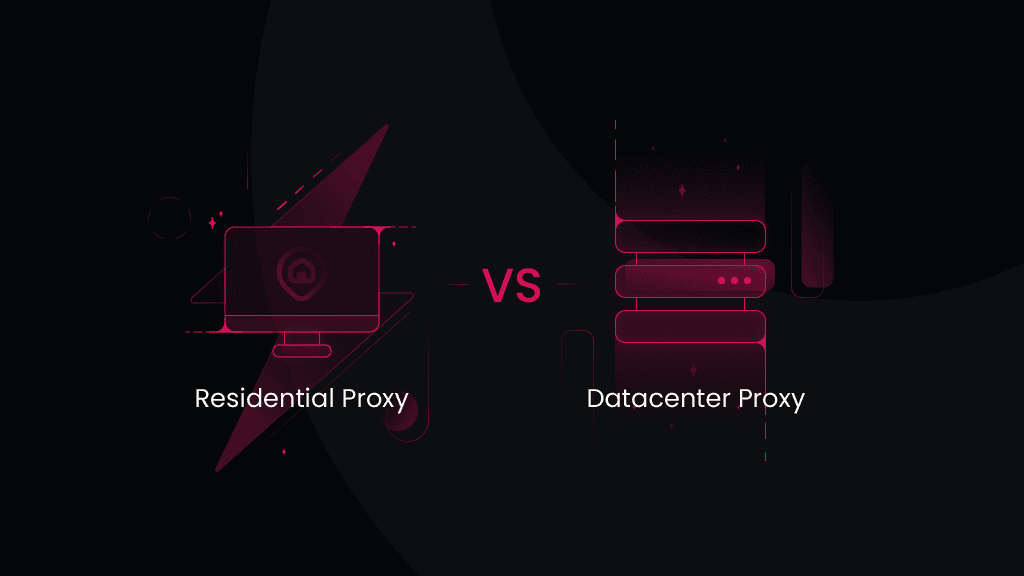What is an SSL or HTTPS Proxy
If you’re new to proxies, the variety of types can be confusing. An SSL or HTTPS proxy simply refers to a proxy that uses the HTTPS protocol to create a secure, encrypted connection between your device and the proxy server.
Proxy types usually describe either the device providing the proxy (like residential or datacenter) or the connection method used. SSL/HTTPS proxies fall into the latter group, ensuring your data is encrypted and protected during transmission.
Using an SSL/HTTPS proxy helps keep your data private, secure, and compatible with most modern websites that require HTTPS connections.
Mariam Nakani
Mar 11, 2024
4 min read

What is an SSL or HTTPS proxy?
An SSL proxy is a proxy server that uses the SSL protocol. The abbreviation SSL means Secure Sockets Layer. It’s the ‘S’ in HTTPS – the hypertext transfer protocol over SSL. This protocol has been the security standard of the World Wide Web for several years.
So, an HTTPS proxy is simply a proxy that uses the HTTP protocol over SSL.
What are the benefits of an SSL / HTTPS proxy?
A proxy that uses the SSL layer for the HTTP protocol has two major advantages: it’s safer and more anonymous than simple HTTP proxies. See, the HTTPS protocol does not transfer your data in a plain-text format. The SSL layer encrypts your data, so it’s never visible to third parties.
- An HTTPS proxy is safer – the SSL layer provides encryption between the requester and the target server. This layer protects your information from third parties, like internet service providers (ISPs), hackers, or government institutions. Even if bad actors manage to successfully intercept or monitor your connection over the proxy server, it will still be encrypted with the HTTPS protocol, as opposed to the HTTP protocol.
- An SSL proxy is anonymous – a proxy will hide your IP, but the added safety of the SSL layer increases your anonymity, as it reduces the information available about your connection request.
If you connect through an SSL proxy server, you will not only stay safe due to the industry-grade SSL encryption, but you will also hide your IP address. HTTPS proxies are the perfect solution if you want both anonymity and security.
How do SSL / HTTPS proxies work?
HTTPS proxies use the SSL layer to encrypt all information between your endpoint and the website, service, or server you want to access. This process is identical to how you connect to any SSL–certified website. The SSL certificate that enables the HTTPS connection is the industry standard. Most major browsers will warn you about accessing a site that does not have an SSL certificate.

Types of SSL proxies
SSL proxies come in two main types. The first (“forward” proxy) focuses on protecting the client-side. Think of it as a middleman standing between the external server and the internal client. Its job is to decrypt and inspect outbound traffic headed to the web. So, it acts like a filter, making sure everything is safe and sound before it leaves your device.
The other type (“reverse” proxy) is a bit different. It handles inbound traffic, working like a shield that intercepts data coming from the web and sends it to an internal or localized server. Its main goal is to weed out any potential threats or harmful data packets, keeping your internal systems safe and sound.
Start your 3-day free trial of residential proxies
Experience the power of 115M+ IPs from 195+ global locations.
Where can you use an SSL / HTTPS proxy?
- Unblocking websites. Many sites block content for users from other countries. This is why many people look for a proxy to listen to Spotify, watch YouTube, access information in other countries, etc.
- Avoiding restrictions. Your ISP, company, or even the government could be blocking thousands of sites, so the freedom of the internet is up to proxies and VPNs that allow everyone to access various sites without any firewalls blocking them.
- Secure connections. Revealing your data online is a grave concern nowadays. This is exactly the reason why you should hide your IP address, especially if you’re using HTTPS proxies. The added SSL layer makes your connection encrypted to prevent any other data from falling into the wrong hands.
- Anonymity. An IP address is one of the main identifiers online. It can be used to track, spy on, and harass people. A proxy is a simple method of changing your IP to prevent this, and HTTPS proxies are the most secure type of proxy available.
- Web data scraping. There are many obstacles to gathering public information from the web. One of the more common ones are IP blocks and CAPTCHAs that put a stop to market researchers, data analysts, and other people who are trying to get the data they need. Therefore, a shared proxy network like ours is very useful: analysts and researchers can use millions of unique HTTPS IP addresses as SSL proxies to get the data they need and start changing the world for the better.
- Ad verification. SSL / HTTPS proxies provide a secure and anonymous environment for ad verification as they allow to effectively verify ad placements, detect ad fraud, and check that the ad campaigns are running correctly.
- Brand protection. Proxies allow you to safely bypass geo-restrictions and establish a secure connection to monitor your brand’s online reputation, intellectual property, and brand image from such threats as cybersquatting, copyright infringement, counterfeiting, etc.
- Managing social media accounts. Social media data leaks pose a serious risk. Among these are company data leaks, IP address logs, and other information you would never want to make public. Many companies and social media management firms use proxies as a more secure and anonymous way to manage social media accounts.
- Getting limited products. Brands often release limited products in certain locations. You can access those products by changing your IP to one from that country. For example, many people use automated programs to buy limited edition sneakers. A proxy near Nike’s or Supreme’s servers makes your connection faster.
And more!
Final thoughts
SSL/HTTPS proxies deliver essential security, privacy, and flexibility by encrypting your data and masking your IP address. They protect you from surveillance and online threats, making them ideal for accessing restricted content, scraping data, managing social media, and safeguarding your digital activities. With SSL/HTTPS proxies, your connection stays secure and your information remains private.
About the author

Mariam Nakani
Say hello to Mariam! She is very tech savvy - and wants you to be too. She has a lot of intel on residential proxy providers, and uses this knowledge to help you have a clear view of what is really worth your attention.
All information on Decodo Blog is provided on an as is basis and for informational purposes only. We make no representation and disclaim all liability with respect to your use of any information contained on Decodo Blog or any third-party websites that may belinked therein.

